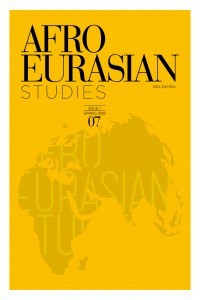
Afro Eurasian Studies
Yazarlar: Serkan DİLEK, Hayrettin KESGİNGÖZ, Ali KONAK, Suha HALICIOĞLU
Konular:İktisat
DOI:10.33722/afes.475575
Anahtar Kelimeler:Economic Literacy,Education of Economics,Affecting,Economy
Özet: It is generally accepted that economic literacy facilitates rational decision making and provides more accurate economic decisions. In this case, improving literacy in the economy will lead to an increase in economic efficiency and the welfare of both individuals and society. The aim of the economy is, in fact, to maximize the welfare of society and to provide economic efficiency. Therefore, it is possible to achieve economic objectives by increasing economic literacy. The objective of this search is to reveal the factors affecting economic literacy, and thus, investigate the ways of increasing economic efficiency. To reach this aim, a questionnaire was conducted to 481 people in Kastamonu and Tosya, Turkey. According to the results of the questionnaire, we found a statistically significant positive correlation between economic education and the interest in economics with economic literacy. However, we did not find any significant correlation between the belief in the usefulness of economic knowledge and economic literacy. Surprisingly, a statistically significant correlation between economic literacy and economic wealth could not be found.